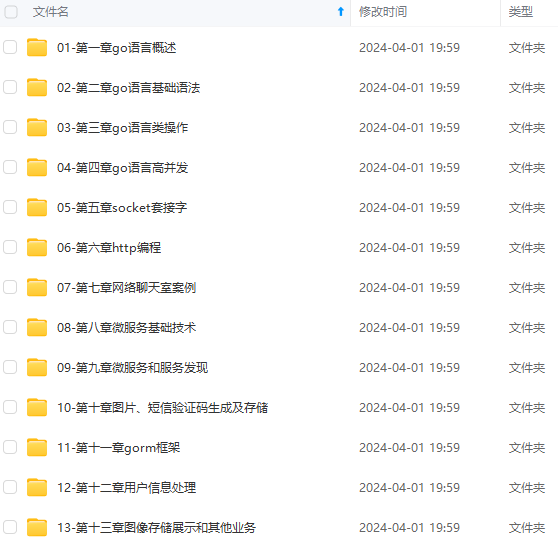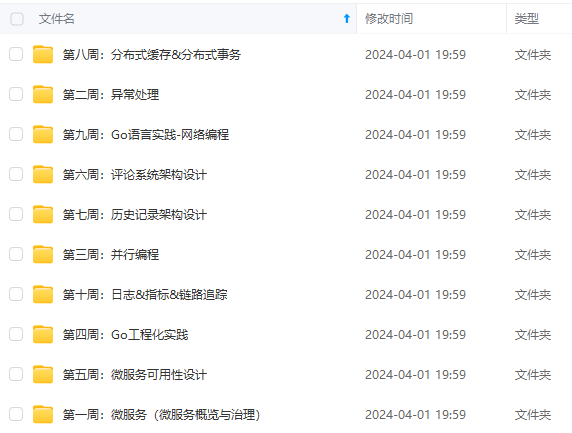

网上学习资料一大堆,但如果学到的知识不成体系,遇到问题时只是浅尝辄止,不再深入研究,那么很难做到真正的技术提升。
一个人可以走的很快,但一群人才能走的更远!不论你是正从事IT行业的老鸟或是对IT行业感兴趣的新人,都欢迎加入我们的的圈子(技术交流、学习资源、职场吐槽、大厂内推、面试辅导),让我们一起学习成长!
}
if (!component)
reporter->FatalError("type of packet dumper '%s' not recognized", prefix.c\_str());
// Instantiate packet dumper.
//调用构造
PktDumper\* pd = (\*component->Factory())(npath, append);
assert(pd);
if (!pd->IsOpen() && pd->IsError())
// Set an error message if it didn't open successfully.
pd->Error("could not open");
DBG\_LOG(DBG_PKTIO, "Created packer dumper of type %s for %s", component->Name().c\_str(), npath.c\_str());
pd->Init();
pkt_dumpers.push\_back(pd);
return pd;
}
3. 构造
iosource::PktDumper* PcapDumper::Instantiate(const std::string& path, bool append)
{
return new PcapDumper(path, append);
}
#### Init
1. Init
void PktDumper::Init()
{
Open();
}
2. Open
void PcapDumper::Open()
{
int linktype = -1;
pd = pcap\_open\_dead(DLT_EN10MB, BifConst::Pcap::snaplen);
if (!pd)
{
Error("error for pcap\_open\_dead");
return;
}
if (props.path.empty())
{
Error("no filename given");
return;
}
struct stat s;
int exists = 0;
if (append)
{
// See if output file already exists (and is non-empty).
exists = stat(props.path.c\_str(), &s);
if (exists < 0 && errno != ENOENT)
{
Error(util::fmt("can't stat file %s: %s", props.path.c\_str(), strerror(errno)));
return;
}
}
if (!append || exists < 0 || s.st_size == 0)
{
// Open new file.
dumper = pcap\_dump\_open(pd, props.path.c\_str());
if (!dumper)
{
Error(pcap\_geterr(pd));
return;
}
}
else
{
#ifdef HAVE_PCAP_DUMP_OPEN_APPEND
dumper = pcap_dump_open_append(pd, props.path.c_str());
#else
// Old file and we need to append, which, unfortunately,
// is not supported by libpcap. So, we have to hack a
// little bit, knowing that pcap_dumper_t is, in fact,
// a FILE … 😦
dumper = (pcap_dumper_t*)fopen(props.path.c_str(), “a”);
#endif
if (!dumper)
{
Error(util::fmt(“can’t open dump %s: %s”, props.path.c_str(), strerror(errno)));
return;
}
}
props.open_time = run_state::network_time;
Opened(props);
}
## Analyzer

Zeek的动态分析框架是将分析器树与每个连接相关联。这棵树可以包含任意数量的分析器在各种群体,并且在连接的整个生命周期内都可以进行修改。并且zeek提供了两种关键的能力:
* 独立于端口进行协议分析。通过一组与协议内容匹配的特征,zeek可以通过器payload找到正确的分析器。当特征匹配时会使用对应的分析器。
* 当分析器解析错误的协议时,可以关闭分析器,并且我们可以使用多个分析器。
所有分析器都派生自类`Analyzer`。我们将 分析器树与每个连接相关联,它反映了数据包分析期间的数据流,分析器根据哪些分析器执行其分析。每个数据包首先被传递到树的根节点,该根节点将其(可能转换的)输入传递给它的所有子节点。每个孩子依次将数据传递给其继任者。
根节点必须始终是`TransportLayerAnalyzer`类型。例如`TCP`、`UDP`和`ICMP`分析器。应用层分析器要么派生自`TCP_ApplicationAnalyzer`(对于TCP 协议),要么派生自通用Analyzer类(对于所有非TCP 协议)。
当连接开始时,初始分析器树由全局`analyzer::Manager`实例化。初始树始终包含相应的`TransportLayerAnalyzer`。对于TCP和UDP,它还分别包含PIA\_TCP或PIA\_UDP类的实例。PIA 负责在连接进行时检测协议。最重要的是,它们执行签名匹配。根据是否使用任何已知端口,初始树可能立即包含也可能不包含任何应用层分析器。
分析器可以支持两种输入方法之一(或两者):分组方式或流方式。分析器可以通过一种方法(例如,分组方式)接受输入,并通过另一种方法(例如,流方式)将其传递给它的孩子。例如TCP\_Analyzer将数据包重新组合成字节流,因此所有TCP\_ApplicationAnalyzer只能看到流式输入。
### Analyzer的接口
// 初始化analyzer
void Init()
// 清楚analyer
void Done()
//分组输入接口
// len 数据长度
// data 指向数据的指针
// orig 数据来自连接发起者为true
// seq 数据相关的序号,如果没有则为-1
// ip 如果有IP相关的数据包头,如果没有则为空
// caplen ip的长度?
void DeliverPacket(int len, const u_char\* data, bool orig, uint64 seq, const IP_Hdr\* ip, int caplen)
// 流式输入的接口
// len 数据长度
// data 指向数据的指针
// orig 数据来自连接发起者为true
void DeliverStream(int len, const u_char\* data, bool orig)
// 取消seq的报文
void Undelivered(uint64 seq, int len, bool orig)
// 返回分析器当前使用的内存字节数。
unsigned int MemoryAllocation() const
// 返回分析器类的新实例
static Analyzer\* InstantiateAnalyzer(Connection\* conn)
// 如果分析器完全禁用并且不考虑任何连接,则返回 false。(通常情况下,如果没有为分析器定义事件处理程序,就会出现这种情况。)
static bool Available()
// 给定的端点是否已经传输完成
void EndpointEOF(bool is_orig)
// 每当端点进入TCP\_CLOSED或TCP\_RESET时调用。
void ConnectionFinished(int half_finished)
// 连接重置时调用
void ConnectionReset()
// 每当看到RST数据包时调用(有时调用 ConnectionReset会延迟)
void PacketWithRST()
Analyzer如果构建?
Analyzer如何调度,如何形成链式?
## Connection
[外链图片转存失败,源站可能有防盗链机制,建议将图片保存下来直接上传(img-pPXGuU0z-1660489984252)(https://cdn.nlark.com/yuque/\_\_puml/544ea3f957a363da4150f42434905c49.svg#lake\_card\_v2=eyJ0eXBlIjoicHVtbCIsImNvZGUiOiJAc3RhcnR1bWxcblxuY2xhc3MgT2JqIHtcblx0XG59XG5cblxuQGVuZHVtbCIsInVybCI6Imh0dHBzOi8vY2RuLm5sYXJrLmNvbS95dXF1ZS9fX3B1bWwvNTQ0ZWEzZjk1N2EzNjNkYTQxNTBmNDI0MzQ5MDVjNDkuc3ZnIiwiaWQiOiJRTTdFViIsIm1hcmdpbiI6eyJ0b3AiOnRydWUsImJvdHRvbSI6dHJ1ZX0sImNhcmQiOiJkaWFncmFtIn0=)]
## 启动
### run\_loop
void run_loop()
{
util::detail::set_processing_status(“RUNNING”, “run_loop”);
iosource::Manager::ReadySources ready;
ready.reserve(iosource_mgr->TotalSize());
while (iosource_mgr->Size() || (BifConst::exit_only_after_terminate && !terminating))
{
time_updated = false;
iosource_mgr->FindReadySources(&ready);
#ifdef DEBUG
static int loop_counter = 0;
// If no source is ready, we log only every 100th cycle,
// starting with the first.
if (!ready.empty() || loop_counter++ % 100 == 0)
{
DBG\_LOG(DBG_MAINLOOP, "realtime=%.6f ready\_count=%zu", util::current\_time(), ready.size());
if (!ready.empty())
loop_counter = 0;
}
#endif
current_iosrc = nullptr;
auto communication_enabled = broker_mgr->Active();
if (!ready.empty())
{
for (const auto& src : ready)
{
auto\* iosrc = src.src;
DBG\_LOG(DBG_MAINLOOP, "processing source %s", iosrc->Tag());
current_iosrc = iosrc;
if (iosrc->ImplementsProcessFd() && src.fd != -1)
iosrc->ProcessFd(src.fd, src.flags);
else
iosrc->Process();
}
}
else if ((have_pending_timers || communication_enabled || BifConst::exit_only_after_terminate) && !pseudo_realtime)
{
// Take advantage of the lull to get up to
// date on timers and events. Because we only
// have timers as sources, going to sleep here
// doesn't risk blocking on other inputs.
update\_network\_time(util::current\_time());
expire\_timers();
}
// Ensure that the time gets updated every pass if we're reading live.
// This is necessary for e.g. packet sources that don't have a selectable
// file descriptor. They'll always be ready on a very short timeout, but
// won't necessarily have a packet to process. In these case, sometimes
// the time won't get updated for a long time and timers don't function
// correctly.
if ((!time_updated && reading_live))
{
update\_network\_time(util::current\_time());
expire\_timers();
}
event_mgr.Drain();
processing_start_time = 0.0; // = "we're not processing now"
current_dispatched = 0;
current_iosrc = nullptr;
if (::signal_val == SIGTERM || ::signal_val == SIGINT)
// We received a signal while processing the
// current packet and its related events.
// Should we put the signal handling into an IOSource?
zeek\_terminate\_loop("received termination signal");
if (!reading_traces)
// Check whether we have timers scheduled for
// the future on which we need to wait.
have_pending_timers = zeek::detail::timer_mgr->Size() > 0;
if (pseudo_realtime && communication_enabled)
{
auto have_active_packet_source = false;
iosource::PktSrc\* ps = iosource_mgr->GetPktSrc();
if (ps && ps->IsOpen())
have_active_packet_source = true;
if (!have_active_packet_source)
// Can turn off pseudo realtime now
pseudo_realtime = 0.0;
}
}
// Get the final statistics now, and not when finish\_run() is
// called, since that might happen quite a bit in the future
// due to expiring pending timers, and we don't want to ding
// for any packets dropped beyond this point.
get\_final\_stats();
}
### Process
void PktSrc::Process()
{
if (!IsOpen())
return;
if (!ExtractNextPacketInternal())
return;
run_state::detail::dispatch\_packet(¤t_packet, this);
have_packet = false;
DoneWithPacket();
}
#### ExtractNextPacketInternal
bool PktSrc::ExtractNextPacketInternal()
{
if (have_packet)
return true;
have_packet = false;
// Don't return any packets if processing is suspended (except for the
// very first packet which we need to set up times).
if (run_state::is\_processing\_suspended() && run_state::detail::first_timestamp)
return false;
if (run_state::pseudo_realtime)
run_state::detail::current_wallclock = util::current\_time(true);
if (ExtractNextPacket(¤t_packet))
{
if (current_packet.time < 0)
{
Weird("negative\_packet\_timestamp", ¤t_packet);
return false;
}
if (!run_state::detail::first_timestamp)
run_state::detail::first_timestamp = current_packet.time;
have_packet = true;
return true;
}
if (run_state::pseudo_realtime && !IsOpen())
{
if (broker_mgr->Active())
iosource_mgr->Terminate();
}
return false;
}
bool PcapSource::ExtractNextPacket(Packet* pkt)
{
if (!pd)
return false;
const u_char\* data;
pcap_pkthdr\* header;
int res = pcap\_next\_ex(pd, &header, &data);
switch (res)
{
case PCAP_ERROR_BREAK: // -2
// Exhausted pcap file, no more packets to read.
assert(!props.is_live);
Close();
return false;
case PCAP_ERROR: // -1
// Error occurred while reading the packet.
if (props.is_live)
reporter->Error("failed to read a packet from %s: %s", props.path.data(), pcap\_geterr(pd));
else
reporter->FatalError("failed to read a packet from %s: %s", props.path.data(), pcap\_geterr(pd));
return false;
case 0:
// Read from live interface timed out (ok).
return false;
case 1:
// Read a packet without problem.
// Although, some libpcaps may claim to have read a packet, but either did
// not really read a packet or at least provide no way to access its
// contents, so the following check for null-data helps handle those cases.
if (!data)
{
reporter->Weird("pcap\_null\_data\_packet");
return false;
}
break;
default:
reporter->InternalError("unhandled pcap\_next\_ex return value: %d", res);
return false;
}
pkt->Init(props.link_type, &header->ts, header->caplen, header->len, data);
if (header->len == 0 || header->caplen == 0)
{
Weird("empty\_pcap\_header", pkt);
return false;
}
++stats.received;
stats.bytes_received += header->len;
// Some versions of libpcap (myricom) are somewhat broken and will return a duplicate
// packet if there are no more packets available. Namely, it returns the exact same
// packet structure (including the header) out of the library without reinitializing
// any of the values. If we set the header lengths to zero here, we can keep from
// processing it a second time.
header->len = 0;
header->caplen = 0;
return true;
}
#### dispatch\_packet
void dispatch_packet(Packet* pkt, iosource::PktSrc* pkt_src)
{
double t = run_state::pseudo_realtime ? check_pseudo_time(pkt) : pkt->time;
if (!zeek_start_network_time)
{
zeek_start_network_time = t;
if (network_time_init)
event_mgr.Enqueue(network_time_init, Args{});
}
current_iosrc = pkt_src;
#pragma GCC diagnostic push
#pragma GCC diagnostic ignored “-Wdeprecated-declarations”
current_pktsrc = pkt_src;
#pragma GCC diagnostic pop
// network\_time never goes back.
update\_network\_time(zeek::detail::timer_mgr->Time() < t ? t : zeek::detail::timer_mgr->Time());
processing_start_time = t;
expire\_timers();
zeek::detail::SegmentProfiler\* sp = nullptr;
if (load_sample)
{
static uint32\_t load_freq = 0;
if (load_freq == 0)
load_freq = uint32\_t(0xffffffff) / uint32\_t(zeek::detail::load_sample_freq);
if (uint32\_t(util::detail::random\_number() & 0xffffffff) < load_freq)
{
// Drain the queued timer events so they're not
// charged against this sample.
event_mgr.Drain();
zeek::detail::sample_logger = new zeek::detail::SampleLogger();
sp = new zeek::detail::SegmentProfiler(zeek::detail::sample_logger, "load-samp");
}
}
//处理包
packet_mgr->ProcessPacket(pkt);
event_mgr.Drain();
if (sp)
{
delete sp;
delete zeek::detail::sample_logger;
zeek::detail::sample_logger = nullptr;
}
processing_start_time = 0.0; // = "we're not processing now"
current_dispatched = 0;
if (pseudo_realtime && !first_wallclock)
first_wallclock = util::current\_time(true);
current_iosrc = nullptr;
#pragma GCC diagnostic push
#pragma GCC diagnostic ignored “-Wdeprecated-declarations”
current_pktsrc = nullptr;
#pragma GCC diagnostic pop
}
#### process\_packet
void Manager::ProcessPacket(Packet* packet)
{
#ifdef DEBUG
static size_t counter = 0;
DBG_LOG(DBG_PACKET_ANALYSIS, “Analyzing packet %ld, ts=%.3f…”, ++counter, packet->time);
#endif
zeek::detail::SegmentProfiler prof(detail::segment_logger, "dispatching-packet");
if (pkt_profiler)
pkt_profiler->ProfilePkt(zeek::run_state::processing_start_time, packet->cap_len);
++num_packets_processed;
bool dumped_packet = false;
if (packet->dump_packet || zeek::detail::record_all_packets)
{
DumpPacket(packet, packet->dump_size);
dumped_packet = true;
}
// Start packet analysis
root_analyzer->ForwardPacket(packet->cap_len, packet->data, packet, packet->link_type);
if (!packet->processed)
{
if (packet_not_processed)
event_mgr.Enqueue(packet_not_processed, Packet::ToVal(packet));
plugin_mgr->HookUnprocessedPacket(packet);
if (unprocessed_dumper)
unprocessed_dumper->Dump(packet);
total_not_processed++;
}
if (raw_packet)
event_mgr.Enqueue(raw_packet, packet->ToRawPktHdrVal());
// Check whether packet should be recorded based on session analysis
if (packet->dump_packet && !dumped_packet)
DumpPacket(packet, packet->dump_size);
}
#### ForwardPacket
bool Analyzer::ForwardPacket(size_t len, const uint8_t* data, Packet* packet) const
{
AnalyzerPtr inner_analyzer = nullptr;
for (const auto& child : analyzers_to_detect)
{
if (child->DetectProtocol(len, data, packet))
{
DBG\_LOG(DBG_PACKET_ANALYSIS, "Protocol detection in %s succeeded, next layer analyzer is %s", GetAnalyzerName(),
child->GetAnalyzerName());
inner_analyzer = child;
break;
}
}
if (!inner_analyzer)
inner_analyzer = default_analyzer;
if (!inner_analyzer)
{
DBG\_LOG(DBG_PACKET_ANALYSIS, "Analysis in %s stopped, no default analyzer available.", GetAnalyzerName());
if (report_unknown_protocols)
Weird("no\_suitable\_analyzer\_found", packet);
return false;
}
return inner_analyzer->AnalyzePacket(len, data, packet);
}
#### EthernetAnalyzer::AnalyzePacket
bool EthernetAnalyzer::AnalyzePacket(size_t len, const uint8_t* data, Packet* packet)
{
// Make sure that we actually got an entire ethernet header before trying
// to pull bytes out of it.
if (16 >= len)
{
Weird(“truncated_ethernet_frame”, packet);
return false;
}
// Skip past Cisco FabricPath to encapsulated ethernet frame.
if (data[12] == 0x89 && data[13] == 0x03)
{
auto constexpr cfplen = 16;
if (cfplen + 14 >= len)
{
Weird("truncated\_link\_header\_cfp", packet);
return false;
}
data += cfplen;
len -= cfplen;
}
// Get protocol being carried from the ethernet frame.
uint32\_t protocol = (data[12] << 8) + data[13];
packet->eth_type = protocol;
packet->l2_dst = data;
packet->l2_src = data + 6;
// Ethernet II frames
if (protocol >= 1536)
return ForwardPacket(len - 14, data + 14, packet, protocol);
// Other ethernet frame types
if (protocol <= 1500)
{
if (16 >= len)
{
Weird("truncated\_ethernet\_frame", packet);
return false;
}
// Let specialized analyzers take over for non Ethernet II frames.
// Note that pdata remains at the start of the ethernet frame.
AnalyzerPtr eth_analyzer = nullptr;
if (data[14] == 0xAA && data[15] == 0xAA)
// IEEE 802.2 SNAP
eth_analyzer = SNAPAnalyzer;
else if (data[14] == 0xFF && data[15] == 0xFF)
// Novell raw IEEE 802.3
eth_analyzer = NovellRawAnalyzer;
else
// IEEE 802.2 LLC
eth_analyzer = LLCAnalyzer;
if (eth_analyzer)
return eth_analyzer->AnalyzePacket(len, data, packet);
return true;
}
// Undefined (1500 < EtherType < 1536)
Weird("undefined\_ether\_type", packet);
return false;
}
#### IPAnalyzer::AnalyzePacket
bool IPAnalyzer::AnalyzePacket(size_t len, const uint8_t* data, Packet* packet)
{
// Check to make sure we have enough data left for an IP header to be here. Note we only
// check ipv4 here. We’ll check ipv6 later once we determine we have an ipv6 header.
if (len < sizeof(struct ip))
{
Weird(“truncated_IP”, packet);
return false;
}
int32\_t hdr_size = static\_cast<int32\_t>(data - packet->data);
// Cast the current data pointer to an IP header pointer so we can use it to get some
// data about the header.
auto ip = (const struct ip\*)data;
uint32\_t protocol = ip->ip_v;
// This is a unique pointer because of the mass of early returns from this method.
if (protocol == 4)
{
packet->ip_hdr = std::make\_shared<IP\_Hdr>(ip, false);
packet->l3_proto = L3_IPV4;
}
else if (protocol == 6)
{
if (len < sizeof(struct ip6\_hdr))
{
Weird("truncated\_IP", packet);
return false;
}
packet->ip_hdr = std::make\_shared<IP\_Hdr>((const struct ip6\_hdr\*)data, false, len);
packet->l3_proto = L3_IPV6;
}
else
{
Weird("unknown\_ip\_version", packet);
return false;
}
// If there's an encapsulation stack in this packet, meaning this packet is part of a chain
// of tunnels, make sure to store the IP header in the last flow in the stack so it can be
// used by previous analyzers as we return up the chain.
if (packet->encap)
{
if (auto\* ec = packet->encap->Last())
ec->ip_hdr = packet->ip_hdr;
}
const struct ip\* ip4 = packet->ip_hdr->IP4\_Hdr();
// TotalLen() returns the full length of the IP portion of the packet, including
// the IP header and payload.
uint32\_t total_len = packet->ip_hdr->TotalLen();
if (total_len == 0)
{
// TCP segmentation offloading can zero out the ip\_len field.
Weird("ip\_hdr\_len\_zero", packet);
if (detail::ignore_checksums)
// Cope with the zero'd out ip\_len field by using the caplen.
total_len = packet->cap_len - hdr_size;
else
// If this is caused by segmentation offloading, the checksum will
// also be incorrect. If checksum validation is enabled - jus tbail here.
return false;
}
if (packet->len < total_len + hdr_size)
{
Weird("truncated\_IPv6", packet);
return false;
}
// For both of these it is safe to pass ip\_hdr because the presence
// is guaranteed for the functions that pass data to us.
uint16\_t ip_hdr_len = packet->ip_hdr->HdrLen();
if (ip_hdr_len > total_len)
{
Weird("invalid\_IP\_header\_size", packet);
return false;
}
if (ip_hdr_len > len)
{
Weird("internally\_truncated\_header", packet);
return false;
}
if (packet->ip_hdr->IP4\_Hdr())
{
if (ip_hdr_len < sizeof(struct ip))
{
Weird("IPv4\_min\_header\_size", packet);
return false;
}
}
else
{
if (ip_hdr_len < sizeof(struct ip6\_hdr))
{
Weird("IPv6\_min\_header\_size", packet);
return false;
}
}
// Ignore if packet matches packet filter.
detail::PacketFilter\* packet_filter = packet_mgr->GetPacketFilter(false);
if (packet_filter && packet_filter->Match(packet->ip_hdr, total_len, len))
return false;
if (!packet->l2_checksummed && !detail::ignore_checksums && ip4
&& !IPBasedAnalyzer::GetIgnoreChecksumsNets()->Contains(packet->ip_hdr->IPHeaderSrcAddr())
&& detail::in\_cksum(reinterpret\_cast<const uint8\_t\*>(ip4), ip_hdr_len) != 0xffff)
{
Weird("bad\_IP\_checksum", packet);
return false;
}
if (discarder && discarder->NextPacket(packet->ip_hdr, total_len, len))
return false;
detail::FragReassembler\* f = nullptr;
if (packet->ip_hdr->IsFragment())
{
packet->dump_packet = true; // always record fragments
if (len < total_len)
{
Weird("incompletely\_captured\_fragment", packet);
// Don't try to reassemble, that's doomed.
// Discard all except the first fragment (which
// is useful in analyzing header-only traces)
if (packet->ip_hdr->FragOffset() != 0)
return false;
}
else
{
f = detail::fragment_mgr->NextFragment(run_state::processing_start_time, packet->ip_hdr, packet->data + hdr_size);
std::shared_ptr<IP_Hdr> ih = f->ReassembledPkt();
if (!ih)
// It didn't reassemble into anything yet.
return true;
ip4 = ih->IP4\_Hdr();
// Switch the stored ip header over to the one from the
// fragmented packet.
packet->ip_hdr = std::move(ih);
len = total_len = packet->ip_hdr->TotalLen();
ip_hdr_len = packet->ip_hdr->HdrLen();
packet->cap_len = total_len + hdr_size;
if (ip_hdr_len > total_len)
{
Weird("invalid\_IP\_header\_size", packet);
return false;
}
}
}
detail::FragReassemblerTracker frt(f);
// We stop building the chain when seeing IPPROTO\_ESP so if it's
// there, it's always the last.
if (packet->ip_hdr->LastHeader() == IPPROTO_ESP)
{
packet->dump_packet = true;
if (esp_packet)
event_mgr.Enqueue(esp_packet, packet->ip_hdr->ToPktHdrVal());
// Can't do more since upper-layer payloads are going to be encrypted.
return true;
}
// We stop building the chain when seeing IPPROTO\_MOBILITY so it's always
// last if present.
if (packet->ip_hdr->LastHeader() == IPPROTO_MOBILITY)
{
packet->dump_packet = true;
if (!detail::ignore_checksums && mobility\_header\_checksum(packet->ip_hdr.get()) != 0xffff)
{
Weird("bad\_MH\_checksum", packet);
return false;
}
if (mobile_ipv6_message)
event_mgr.Enqueue(mobile_ipv6_message, packet->ip_hdr->ToPktHdrVal());
if (packet->ip_hdr->NextProto() != IPPROTO_NONE)
Weird("mobility\_piggyback", packet);
return true;
}
// Set the data pointer to match the payload from the IP header. This makes sure that it's also
// pointing at the reassembled data for a fragmented packet.
data = packet->ip_hdr->Payload();
len -= ip_hdr_len;
// Session analysis assumes that the header size stored in the packet does not include the IP
// header size. There are two reasons for this: 1) Packet::ToRawPktHdrVal() wants to look at the
// IP header for reporting, and 2) The VXLAN analyzer uses the header position to create the
// next packet in the tunnel chain. Once the TCP/UDP work is done and the VXLAN analyzer can
// move into packet analysis, this can change, but for now we leave it as it is.
bool return_val = true;
int proto = packet->ip_hdr->NextProto();
packet->proto = proto;
// Double check the lengths one more time before forwarding this on.
if (total_len < packet->ip_hdr->HdrLen())
{
Weird("bogus\_IP\_header\_lengths", packet);
return false;
}
switch (proto)
{
case IPPROTO_NONE:
// If the packet is encapsulated in Teredo, then it was a bubble and
// the Teredo analyzer may have raised an event for that, else we're
// not sure the reason for the No Next header in the packet.
if (!(packet->encap && packet->encap->LastType() == BifEnum::Tunnel::TEREDO))
{
Weird("ipv6\_no\_next", packet);
return_val = false;
}
break;
default:
packet->proto = proto;
// For everything else, pass it on to another analyzer. If there's no one to handle
// that, it'll report a Weird.
return_val = ForwardPacket(len, data, packet, proto);
break;
}
if (f)
f->DeleteTimer();
return return_val;
}
#### IPBasedAnalyzer::AnalyzePacket
bool IPBasedAnalyzer::AnalyzePacket(size_t len, const uint8_t* data, Packet* pkt)
{
ConnTuple tuple;
if (!BuildConnTuple(len, data, pkt, tuple))
return false;
const std::shared_ptr<IP_Hdr>& ip_hdr = pkt->ip_hdr;
detail::ConnKey key(tuple);
Connection\* conn = session_mgr->FindConnection(key);
if (!conn)
{
conn = NewConn(&tuple, key, pkt);
if (conn)
session_mgr->Insert(conn, false);
}
else
{
if (conn->IsReuse(run_state::processing_start_time, ip_hdr->Payload()))
{
conn->Event(connection_reused, nullptr);
session_mgr->Remove(conn);
conn = NewConn(&tuple, key, pkt);
if (conn)
session_mgr->Insert(conn, false);
}
else
{
conn->CheckEncapsulation(pkt->encap);
}
}
if (!conn)
return false;
// If we successfuly made a connection for this packet that means it'll eventually
// get logged, which means we can mark this packet as having been processed.
pkt->processed = true;
bool is_orig = (tuple.src_addr == conn->OrigAddr()) && (tuple.src_port == conn->OrigPort());
pkt->is_orig = is_orig;
conn->CheckFlowLabel(is_orig, ip_hdr->FlowLabel());
zeek::ValPtr pkt_hdr_val;
if (ipv6_ext_headers && ip_hdr->NumHeaders() > 1)
{
pkt_hdr_val = ip_hdr->ToPktHdrVal();
conn->EnqueueEvent(ipv6_ext_headers, nullptr, conn->GetVal(), pkt_hdr_val);
}
if (new_packet)
conn->EnqueueEvent(new_packet, nullptr, conn->GetVal(), pkt_hdr_val ? std::move(pkt_hdr_val) : ip_hdr->ToPktHdrVal());
conn->SetRecordPackets(true);
conn->SetRecordContents(true);
const u_char\* payload = pkt->ip_hdr->Payload();
run_state::current_timestamp = run_state::processing_start_time;
run_state::current_pkt = pkt;
// TODO: Does this actually mean anything?
if (conn->GetSessionAdapter()->Skipping())
return true;
DeliverPacket(conn, run_state::processing_start_time, is_orig, len, pkt);
run_state::current_timestamp = 0;
run_state::current_pkt = nullptr;
// If the packet is reassembled, disable packet dumping because the
// pointer math to dump the data wouldn't work.
if (pkt->ip_hdr->Reassembled())
pkt->dump_packet = false;
else if (conn->RecordPackets())
{
pkt->dump_packet = true;
// If we don't want the content, set the dump size to include just
// the header.
if (!conn->RecordContents())
pkt->dump_size = payload - pkt->data;
}
return true;
}
#### IPBasedAnalyzer::NewConn
zeek::Connection* IPBasedAnalyzer::NewConn(const ConnTuple* id, const detail::ConnKey& key, const Packet* pkt)
{
int src_h = ntohs(id->src_port);
int dst_h = ntohs(id->dst_port);
bool flip = false;
if (!WantConnection(src_h, dst_h, pkt->ip_hdr->Payload(), flip))
return nullptr;
Connection\* conn = new Connection(key, run_state::processing_start_time, id, pkt->ip_hdr->FlowLabel(), pkt);
conn->SetTransport(transport);
if (flip)
conn->FlipRoles();
BuildSessionAnalyzerTree(conn);
if (new_connection)
conn->Event(new_connection, nullptr);
return conn;
}
#### IPBasedAnalyzer::BuildSessionAnalyzerTree
void IPBasedAnalyzer::BuildSessionAnalyzerTree(Connection* conn)
{
SessionAdapter* root = MakeSessionAdapter(conn);
analyzer::pia::PIA* pia = MakePIA(conn);
bool scheduled = analyzer_mgr->ApplyScheduledAnalyzers(conn, false, root);
// Hmm... Do we want \*just\* the expected analyzer, or all
// other potential analyzers as well? For now we only take
// the scheduled ones.
if (!scheduled)
{ // Let's see if it's a port we know.
if (!analyzers_by_port.empty() && !zeek::detail::dpd_ignore_ports)
{
int resp_port = ntohs(conn->RespPort());
std::set<zeek::Tag>\* ports = LookupPort(resp_port, false);
if (ports)
{
for (const auto& port : \*ports)
{
analyzer::Analyzer\* analyzer = analyzer_mgr->InstantiateAnalyzer(port, conn);
if (!analyzer)
continue;
root->AddChildAnalyzer(analyzer, false);
DBG\_ANALYZER\_ARGS(conn, "activated %s analyzer due to port %d", analyzer_mgr->GetComponentName(port).c\_str(),
resp_port);
}
}
}
}



既有适合小白学习的零基础资料,也有适合3年以上经验的小伙伴深入学习提升的进阶课程,涵盖了95%以上Go语言开发知识点,真正体系化!
由于文件比较多,这里只是将部分目录截图出来,全套包含大厂面经、学习笔记、源码讲义、实战项目、大纲路线、讲解视频,并且后续会持续更新
we know.
if (!analyzers_by_port.empty() && !zeek::detail::dpd_ignore_ports)
{
int resp_port = ntohs(conn->RespPort());
std::setzeek::Tag* ports = LookupPort(resp_port, false);
if (ports)
{
for (const auto& port : \*ports)
{
analyzer::Analyzer\* analyzer = analyzer_mgr->InstantiateAnalyzer(port, conn);
if (!analyzer)
continue;
root->AddChildAnalyzer(analyzer, false);
DBG\_ANALYZER\_ARGS(conn, "activated %s analyzer due to port %d", analyzer_mgr->GetComponentName(port).c\_str(),
resp_port);
}
}
}
}
[外链图片转存中…(img-o6uC6v3F-1715574226017)]
[外链图片转存中…(img-4EJQi9Gx-1715574226017)]
[外链图片转存中…(img-SHJmDkWp-1715574226018)]
既有适合小白学习的零基础资料,也有适合3年以上经验的小伙伴深入学习提升的进阶课程,涵盖了95%以上Go语言开发知识点,真正体系化!
由于文件比较多,这里只是将部分目录截图出来,全套包含大厂面经、学习笔记、源码讲义、实战项目、大纲路线、讲解视频,并且后续会持续更新






















 4470
4470











 被折叠的 条评论
为什么被折叠?
被折叠的 条评论
为什么被折叠?








